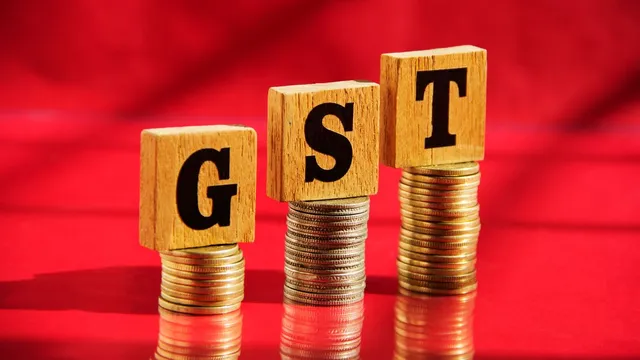- By Chetna Shree
- Thu, 04 Sep 2025 02:22 PM (IST)
- Source:JND
GST Tax Reset 2025: The 56th GST Council meeting, chaired by Union Finance Minister Nirmala Sitharaman on September 3 in New Delhi, has paved the way for a major revamp in India’s indirect tax structure. The approved changes will take effect on September 22, resulting in lower prices for almost all daily-use items. However, a few categories of goods, such as sin goods and luxury goods, will face higher tax rates of 40 per cent.
Hon’ble Prime Minister Shri @narendramodi announced the Next-Generation GST Reforms in his Independence Day address from the ramparts of Red Fort.
— Nirmala Sitharaman Office (@nsitharamanoffc) September 3, 2025
Working on the same principle, the GST Council has approved significant reforms today.
These reforms have a multi-sectoral and… pic.twitter.com/NzvvVScKCF
ALSO READ: GST Reforms: Council Approves 5% And 18% Tax Slabs From Sept 22; 40% GST On Luxury, Sin Goods
What Will Get Cheaper?
The revamped GST structure has approved significant tax reductions across several sectors, directly impacting household budgets.
Food And Daily Essentials
Milk Products:
- UHT milk: Now tax-free (reduced from 5 per cent)
- Condensed milk, butter, ghee, paneer, cheese: Tax slashed from 12 per cent to 5 per cent or nil in some cases
Staple Foods: Malt, starches, pasta, cornflakes, biscuits, chocolates, cocoa products: Tax reduced from 12–18 per cent to 5 per cent
Dry Fruits & Nuts: Almonds, pistachios, hazelnuts, cashews, dates: GST reduced from 12 per cent to 5 per cent
Sugar & Confectionery: Refined sugar, sugar syrups, toffees, candy: Moved to the 5 per cent bracket (down from higher brackets)
Other Packaged Foods: Vegetable oils, animal fats, edible spreads, sausages, meat preparations, fish products, malt extract-based foods: All packaged foods moved to 5 per cent GST slab.
Snacks & Namkeens: Namkeens, bhujia, mixture, chabena, and similar ready-to-eat packaged items (excluding roasted gram): Tax reduced from 18 per cent to 5 per cent
Bottled Water: Mineral, aerated, and other non-flavoured bottled waters (without added sugar/sweeteners): Moved from 18 per cent slab to 5 per cent.
Agricultural Sector
- Fertilisers: Taxes reduced from 12 per cent/18 per cent to 5 per cent
- Select Agricultural inputs, including seeds and crop nutrients: Taxes rationalised from 12 per cent to 5 per cent.
Health Sector
- Under the revamped GST structure, taxes have been reduced from 12 per cent/18 per cent to 5 per cent or nil on life-saving drugs, health-related products and some medical devices.
Education Sector
- Taxes slashed on maps, charts, globes, pencils, sharpeners, crayons, pastels, exercise books, notebooks, erasers and education-related materials from 12 per cent/ 5 per cent to nil.
Consumer Goods
- Electronics: Entry-level and mass-use items from 28 per cent to 18 per cent.
- Footwear & Textiles: GST reduced from 12 per cent to 5 per cent, making daily wear items more affordable for consumers.
- Personal Care Products: GST slashed from 18 per cent to 5 per cent on hair oil, shampoo, dental floss, and toothpaste.
- Paper Products: Select grades now exempt from GST (down from 12%).
GST Reforms Across Other Key Sectors
- Renewable Energy Devices: GST reduced from 12 per cent to 5 per cent.
- Construction Materials: GST on key raw materials used in construction was brought down from 12% to 5%
- Sports Goods & Toys: GST slashed from 12 per cent to 5 per cent.
- Leather, Wood, & Handicrafts: Items moved to the 5 per cent GST slab.
What Will Get Costlier?
Sin Goods:
- Products such as pan masala, gutkha, cigarettes, chewing tobacco, zarda, unmanufactured tobacco, and bidi will continue under existing high GST rates and compensation cess. These items will remain under the compensation cess regime until all cess-linked loan liabilities are repaid.
- GST for these products will now be calculated based on the Retail Sale Price (RSP) instead of the transaction value, aimed at tightening compliance.
- All goods (including aerated waters) containing added sugar, sweeteners, or flavouring will see a GST increase from 28 per cent to 40 per cent.
Luxury And Premium Items
- A dedicated 40% GST slab has been created for sin luxury goods, ensuring continued high taxation and no relief on items such as cigarettes, premium liquor, and high-end cars.
- Imported armoured luxury sedans will be exempt from GST only in exceptional cases, such as those imported by the President’s Secretariat.

